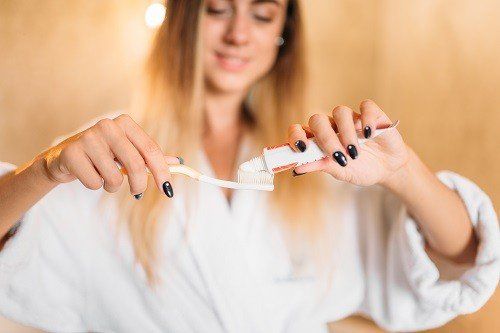How Does Dry Toothpaste Work?
Whether it’s the beverages you drink, the foods you eat, or your preferred toothpaste, every decision you make impacts whether you develop dry mouth. However, by choosing a solid dry toothpaste and listening to some helpful oral healthcare tips, it’s possible to keep dry mouth under control and keep your teeth as healthy as possible. If you need help dealing with dry mouth, here is a quick guide on what you should be doing to address it.
Dry Mouth 101
Also called xerostomia, dry mouth occurs when the mouth doesn’t have enough saliva and, per the ADA, can result from a preexisting medical issue or be one of several side effects of certain medications. While it may not seem to be a serious condition, dry mouth can jeopardize your oral health, as saliva washes away food debris and acids, and the teeth become more vulnerable to cavities and decay without it. Typical dry mouth symptoms include:
·trouble tasting, chewing, speaking, or swallowing
·a persistent sore throat
·cracked lips
·dehydration or stickiness within the mouth
·an occasional burning sensation
Dry Toothpaste for Dry Mouth
For those experiencing symptoms of dry mouth, you have several options for toothpaste available for providing relief. When choosing your toothpaste, check for ones specifically made to help dry mouth as well as whether they contain fluoride. You can even receive prescription strength level toothpaste with the help of your dental professional, or you can check the aisles of your nearest drug store for OTC options. Use this toothpaste once per day instead of your regular toothpaste, ensuring you don’t eat until roughly 30 minutes have passed since brushing. Your dentist can tell you whether you require a prescription toothpaste for dry mouth or whether you only need a reputable OTC brand.
Remedies for Dry Mouth
In addition to toothpaste, there are other simple, effective ways to ease symptoms of dry mouth. For instance, be gentle whenever you brush and make sure to remember to floss daily. Drink enough water to keep up the moisture levels in your mouth and try to avoid caffeinated beverages, which can cause mouth dehydration. Rather than choosing sugary snacks, opt for sugarless candy or gum to stimulate saliva flow as well as using oral rinse specifically for enhancing saliva flow. You can also try running a humidifier while you sleep to keep up your mouth’s moisture level.
To take the best care of yourself when riddled with dry mouth, follow these tips closely, and you should be able to successfully manage your symptoms. Before you begin treating dry mouth, schedule a dental appointment so you can discuss your condition with a professional and develop an action plan to stop dry mouth from affecting your life any further.
If you need to make a dental appointment but are avoiding doing so because of the high costs of dental care, consider signing up for our NH supplemental dental insurance. For more information or to sign up, click here.











